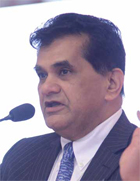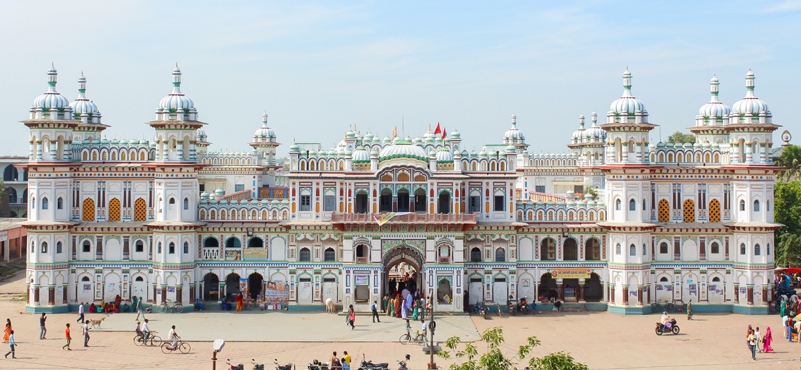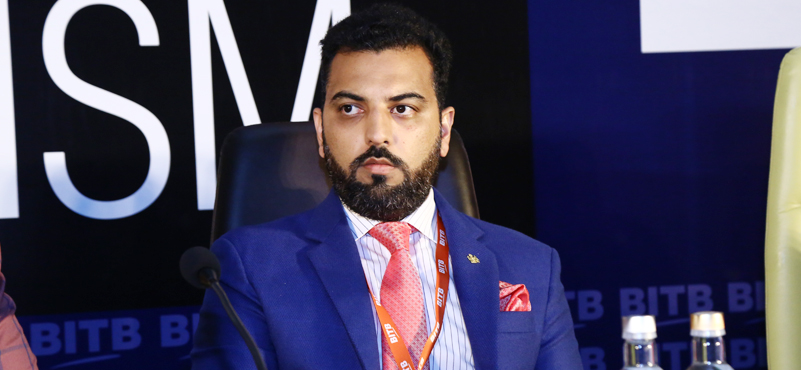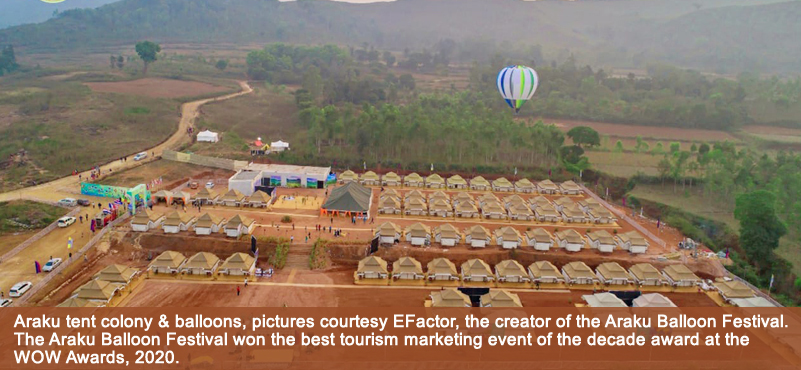India’s recurrent pursuit for a sustained double-digit economic growth, to not only meet the needs of a swelling workforce entering the marketplace at an unprecedented pace, but also to attain the long standing aspiration of becoming a developed economy will acutely depend on the success of the tourism industry in the coming years, believes Amitabh Kant, CEO, Niti Aayog. Excerpts of his Keynote address at the Make in India in Tourism conclave at the BITB 2016.
 “It is a great pleasure and an honour to be in the midst of you. Travel and tourism is a unique forum to promote India as a destination of peace and therefore, it is incumbent upon all of us to make J&K a destination for travel and tourism, again.
“It is a great pleasure and an honour to be in the midst of you. Travel and tourism is a unique forum to promote India as a destination of peace and therefore, it is incumbent upon all of us to make J&K a destination for travel and tourism, again.
India is growing at a rate of 7.5% per annum. It is an oasis of growth in midst of a very barren economic landscape across the world. But the challenge for India is to grow at rates of 9-10% over a three-decade period on a sustained basis, year after year to be able to create jobs for a very young population. India is passing through a demographic transition, which rarely happens in history. 72% of our population is below the age of 32. And therefore, while we grow and expand, it is also necessary that we create jobs. So, if we have to grow at those rate and in relatively short period of time – 5 to 6 years – what do we need to do? And what is the role of tourism in that?
So, first and foremost, I think we have made ourselves very complicated, complex and difficult place to do business in. It takes inordinately long to get permits for construction and getting electricity. It is important to make India an easy and simple place to do business in. In the last two years, we have worked on ‘Make in India’ program to make India one of the easiest and simplest places to do business in. We have dismantled a lot of rules, regulations, procedures and acts that we have built up in the last 68 years. The legacy of the last 68 years has been towards building procedures, acts, rules and regulations, and therefore dismantling them is necessary. We have been able to dismantle 1058 acts. You can register a company in 1 day; you can do a MSME registration in exactly 5 minutes. In exports and imports, we have brought down the number of forms required from 11 and 9 to 3. So there is huge focus on ‘ease of doing business’; we have jumped up 12 positions of the World Bank ‘ease of doing business.’ On the World Economic Forum global competitive index, we have jumped up 32 positions in the last two years.
No country in the world has been able to achieve that, and we need this momentum to continue. But India is a very large country; bigger than 24 countries of Europe, and therefore much of the action is in the states. We need to make our states easy and simple. In DIPP, we did a competition among states last year, on 100 points. We made the states compete, and they competed fiercely. We said, we will name and shame the state; we will put their names out in the public domain. Gujarat came on the number one position and Andhra came on the second spot. We are doing this year’s competition on 344 points, and I can assure you that Gujarat will lose the number one position, and Andhra will lose the number two position. There is so much of competition. Chief Ministers are calling meetings; chief secretaries are calling meetings. Therefore, the big movement is about the ease of doing business. We need to keep our focus on this. In this year points of DIPP, we should include all the points which impact the ‘ease of doing business’ in travel and tourism. So that we can make travel and tourism the easiest things in the world in India. That should be our key emphasis.
The second thing that I want to point make is that tourism grows when we understand that we are in a globalised world. And is to be a very integral part of the global community. If business grows, travel and tourism grows. If India grows at 9-10%, business will grow and people will come in, and people will go out. Today’s business traveller is tomorrow’s leisure traveller. Therefore, we have opened up India’s economy in defence, railways, construction, insurance, pension funds and e-commerce; we have opened up all sectors. Other than multi-brand retail everything is opened up and India is one of the most open economies in the world, including some aspects of tourism – which were held up and we have opened up.
India has now become one of the most open economies of the world. Foreign Direct Investment (FDI) has gone up by 53% while globally FDI has fallen by 16%. In terms of FDI, India is the number one destination. On FDI inflows, we are the number world’s number one destination by Financial Times, Ernst &Young and several other financial analysts.
The third point that I want to mention is that India is now the centre of global innovation in many ways. In the last four years, we have attracted close to 1500 multination corporations in Bengaluru and Hyderabad. Microsoft, Bing, GE, ultra-low cost ECH machines, Philips and others. 1500 companies including services and retail are being innovative here for the rest of the world. 1500 top manufacturing and services, and all the top pharmaceutical companies have relocated their research and innovation centres to India, and we need to accelerate that. India has seen a huge energy and vibrancy in terms of its startup movement, and this is happening because we are the only country in the world with a billion mobile phones and a billion biometrics. What this will lead to is that India has the potential to become a cashless and paperless society by 2025. We have the potential to make all debit and credit cards, all ATM machines irrelevant and redundant by 2025, because the universal payment interface – which has been launched by the RBI will enable you to do all transactions by mobile phones. Therefore, technology can be the biggest driver and India must have the ambition to make itself a totally cashless and paperless society by 2025.
We are only a twenty billion market in e-commerce, but the speeds at which we are growing, India would be about a 300 billion dollars’ market by 2024-2025. Every major transaction will play out on e-commerce. That is the way it has played out in China. In China, in the last five years, the e-commerce market has grown by 600%. Alibaba – a Chinese company started in 2000 has become a 200 billion dollars’ company by 2014. Therefore, technology will drive India and in many ways, you will see this happening on mobile phones, ADHAAR, biometrics interface. We must understand that if our ambition is to grow at 9-10%, it is also important that we accelerate our pace while creating jobs, because accelerated growth without inclusiveness, accelerated growth without equity will be extremely dangerous. While we are growing we must create jobs for our people. We cannot grow at the back of a jobless growth. And therefore, travel and tourism is critical. It is the most important sector, if the PM’s ambition is to accelerate India growth with job creation. You cannot have accelerated growth and job creation without travel and tourism. Tourism must remain in the forefront for job creation and we need about 13-14 states which emerge as champions of travel and tourism. That is why I praise CM J&K Mehbooba Mufti because she has taken upon herself to revive and make tourism an antidote of terrorism. She has actually decided that normalcy in the state can only be revived through travel and tourism. Therefore, my belief is that we need a big revolution in the world of travel and tourism. Now what does it take to create a travel and tourism revolution?
To my mind, travel and tourism is essentially a private sector activity with the government acting as a facilitator. We go through a circle where we say that there is a shortage of rooms, we crate the infrastructure, and once this infrastructure is created we say it will create an excess capacity.
Let me assure you that within two years you will say that there is a shortage of rooms again. So we need to make that circle grow bigger and bigger. Therefore, there are couple of things that India needs to do. While we have opened up our visa regime, we need to expand it even further, and we need to make it far easier and simpler. The e-visa regime needs to be extended to many other countries to make it easier and simpler; make it so simple that we could make coming into India as simple as a drop of the hat. India is a long-haul destination. 97.2% of our tourists come by air; we are not like any other country. In all other countries, when you try and compare our numbers with Thailand, Malaysia and Singapore, it is totally fraud. Because in countries in Europe, people travel by cars and visit a place for 1-2 days. They cross geographical boundaries and come in. But in India, 97.2% of the people come by air, and because India is a long-haul destination, people prepare their itineraries and travel. Therefore, the number of days they spend in India is the longest.
Therefore, India needs to make getting visa extremely easy and simple, but also open up the air regime totally. You cannot make your air regime dependent on the national carrier. It must open up the air regime to allow carriers to come into India from different parts of the world. Even now, today, small places like Hong Kong and Singapore have 10 times the connectivity as compared to India. Therefore, you need to not only open up your metros, but also bring in direct air-connectivity to the regional cities. As smaller cities like Varanasi, Kochi, Trivandrum, Calicut grow, we need to bring in international; carriers straight in there and allow many states to grow on the back of tourism.




































